What started as a good excuse to take a break from thesis writing (while still being productive), ended up being two of the best days I’ve ever had in college – the 2020 Zoology/Botany Postgrad Symposium.
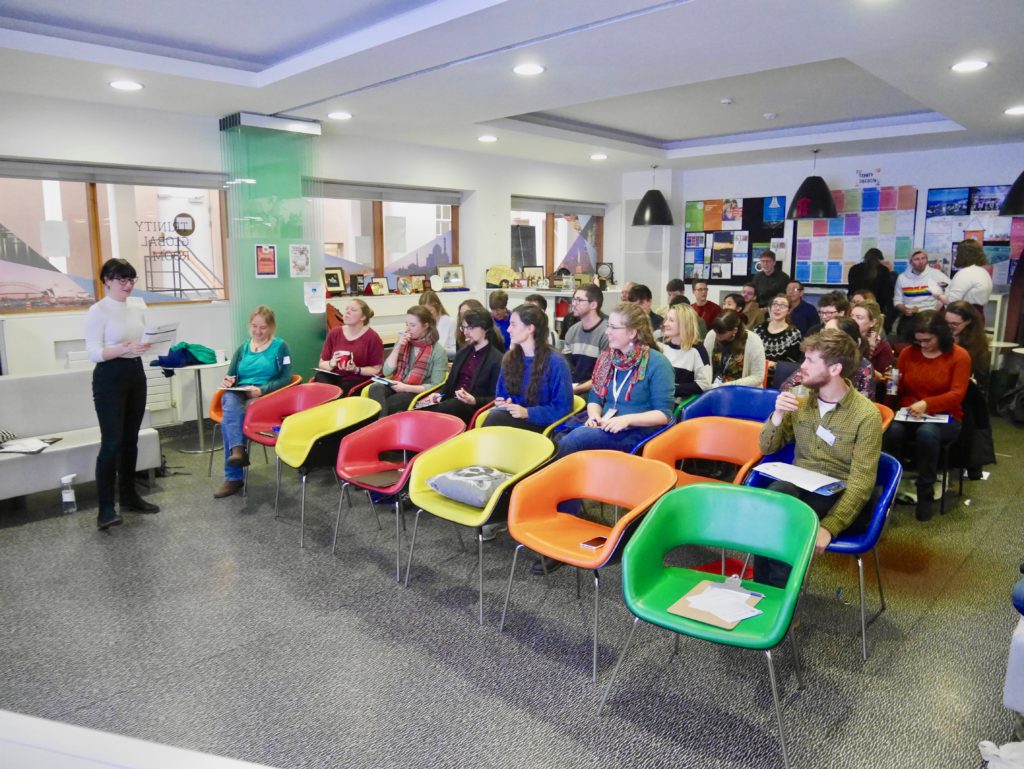
For two days we were treated to the most incredible talks on a wide range of topics, covering theoretical, lab-based, and field work. It was incredible to see the wide range of research being done in the department. It’s difficult to keep up with everything that’s going on, but these talks gave a great insight into some of the incredible work being done.
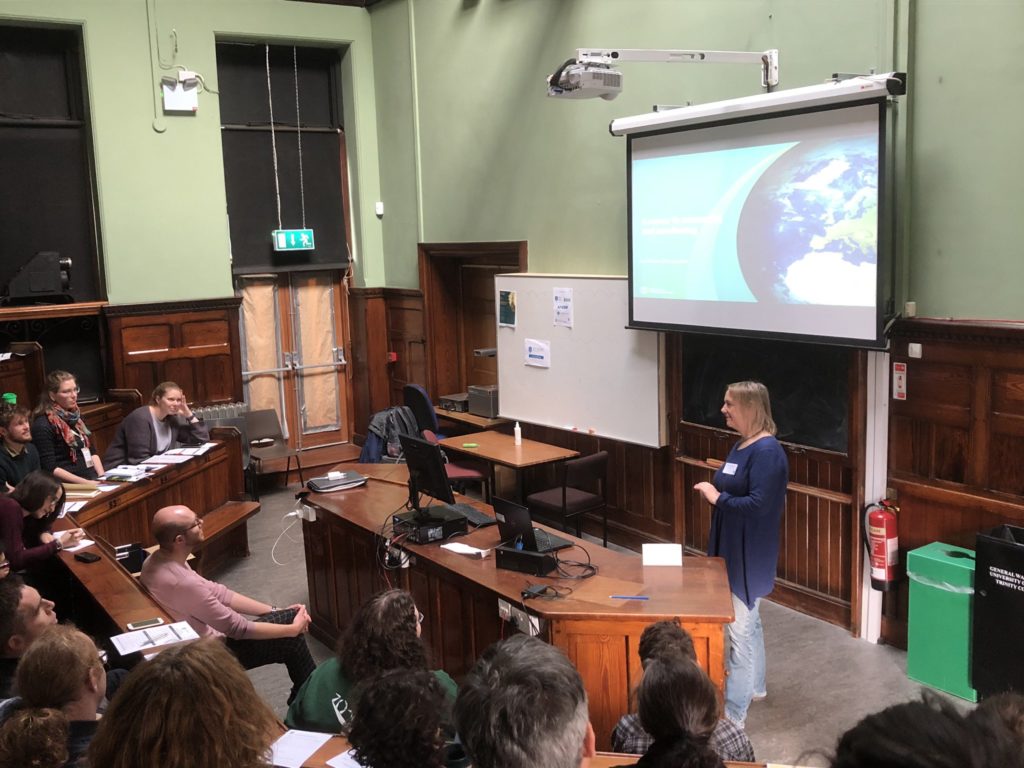
One of the highlights of the symposium for me was hearing about the variety of pathways into ecology. Both keynote speakers (Dr Lisa Norton and Dr Peter Manning) had varied and interesting career paths, and as someone only figuring out what I want to do next, I thought it was incredibly reassuring to hear that there are different paths into academia. Everyone moves at their own pace and you can plan all you want, but you never know how life is going to turn out.

One of my favourite pieces of research from this symposium (although it’s hard to pick just one!) was Lucy Harding’s investigation into thermal niches in sharks – I’m really looking forward to reading this when its published. I also really enjoyed James Orr’s talk and how effortlessly he explained such difficult and abstract topics (at some stages veering into 4 dimensions!). I must say I was really happy to see such a lot of maths being integrated into biology. Too often maths is thought of as an abstract concept, but it’s so relevant to every aspect of life, and it’s so important no matter what avenue of science you’re exploring.
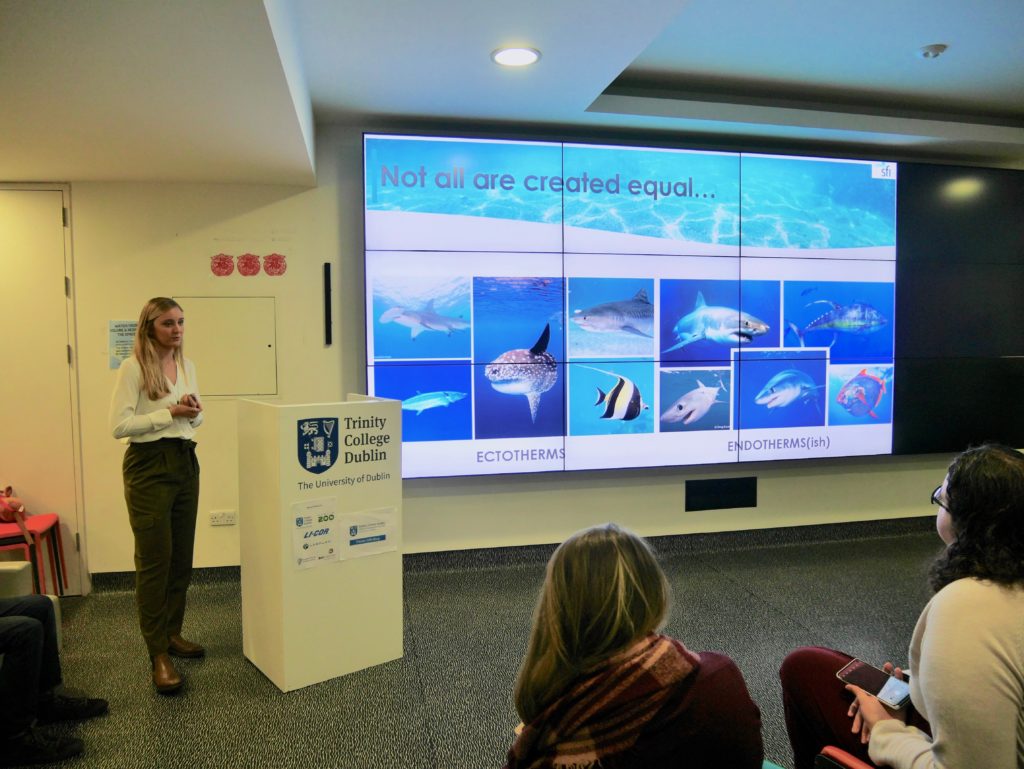
I also really enjoyed seeing the range of field and lab work being done in the school, from measuring carbon produced by peatlands to dietary conservatism in sticklebacks. As someone who usually works from a desk, I think doing field and lab work is so impressive. It takes such a range of skills to be able to do field work, statistical analysis, and then to write up your results in a comprehensive manner.
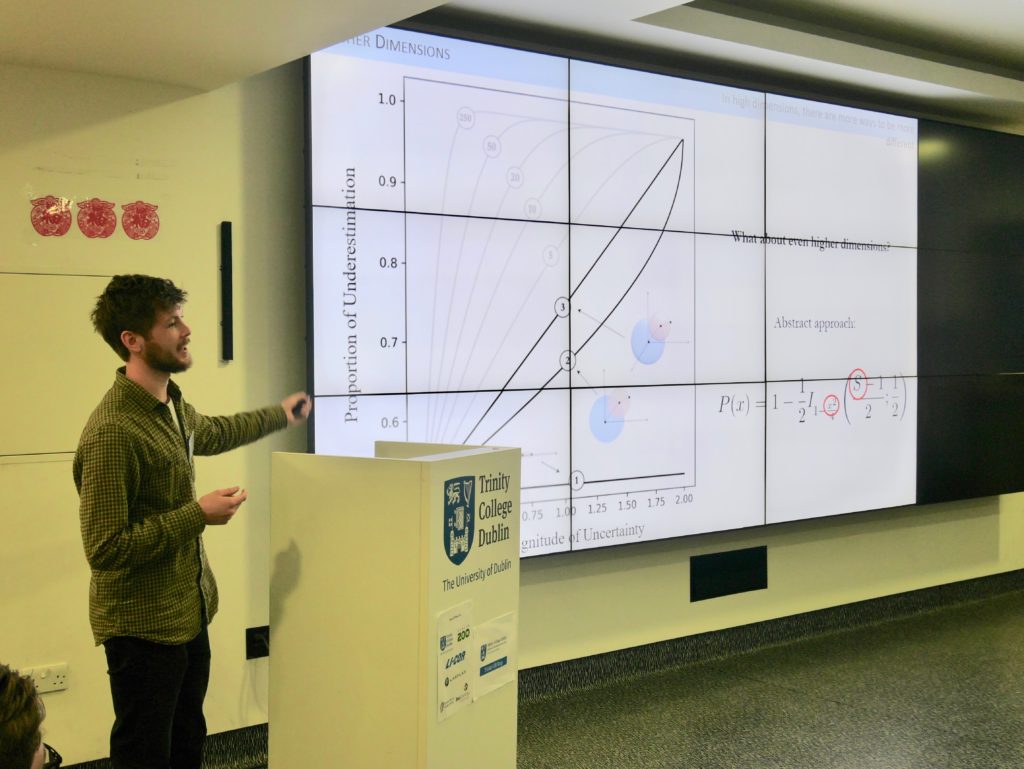
Of course climate change was an issue highlighted in a number of talks. It’s clear that this is, and will continue to be, the defining issue for the majority of scientists. Global warming is already impacting ecosystems, and will continue to do so. The research being done here really is key to understanding how we can help preserve ecosystems and ecosystem functioning in the face of this unprecedented change in climate.
While of course over the two days I learned so much from the content of the presentations, I think I learned just as much from watching the speakers and looking at how they addressed the audience, how they used the slides to their full advantage, and how they were able to speak without relying on their notes. Getting to watch such excellent and confident speakers has helped to motivate me to practise to get more confident in public speaking… or at least to practise enough that I can fool people into thinking I’m relaxed.
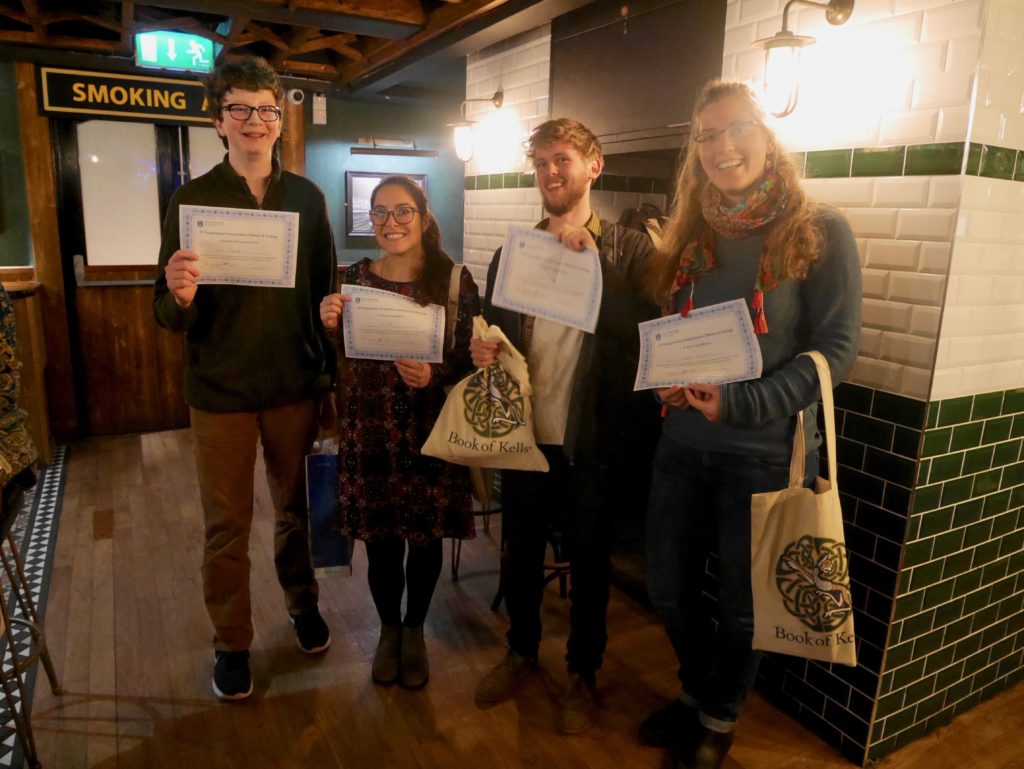
Finally, I learned that no matter how much you learn at a symposium, you will learn ten times more in conversations at the pub after!
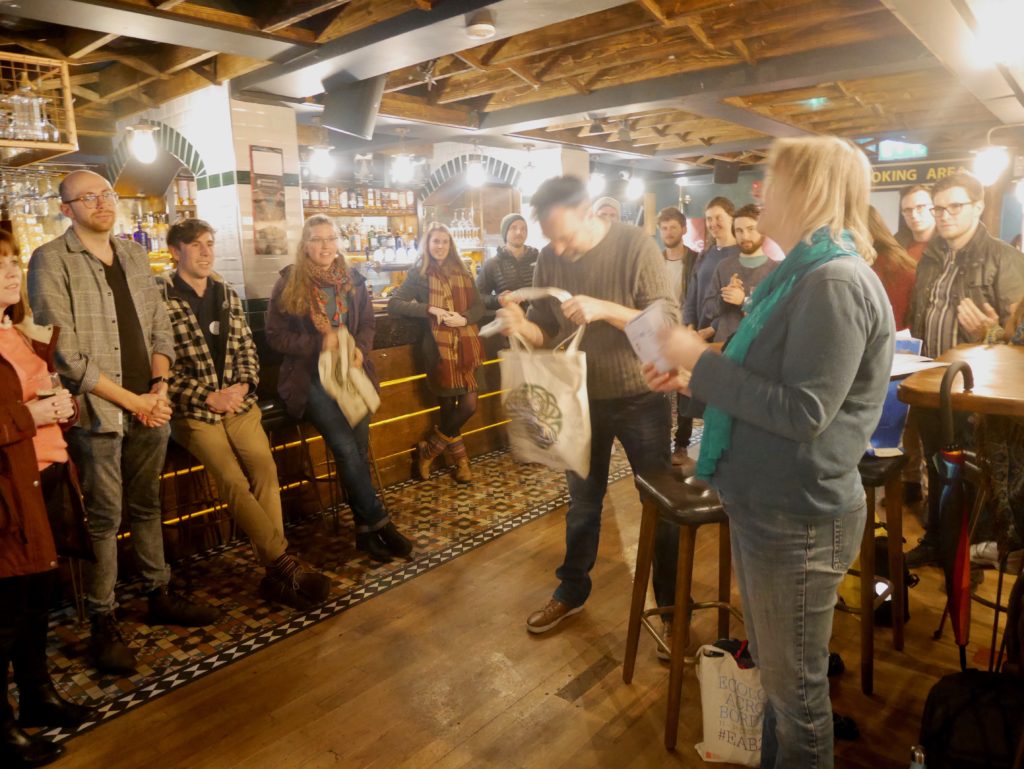
And on behalf of all attendees of the Postgrad Symposium, a big thank you to the organisers of the event!
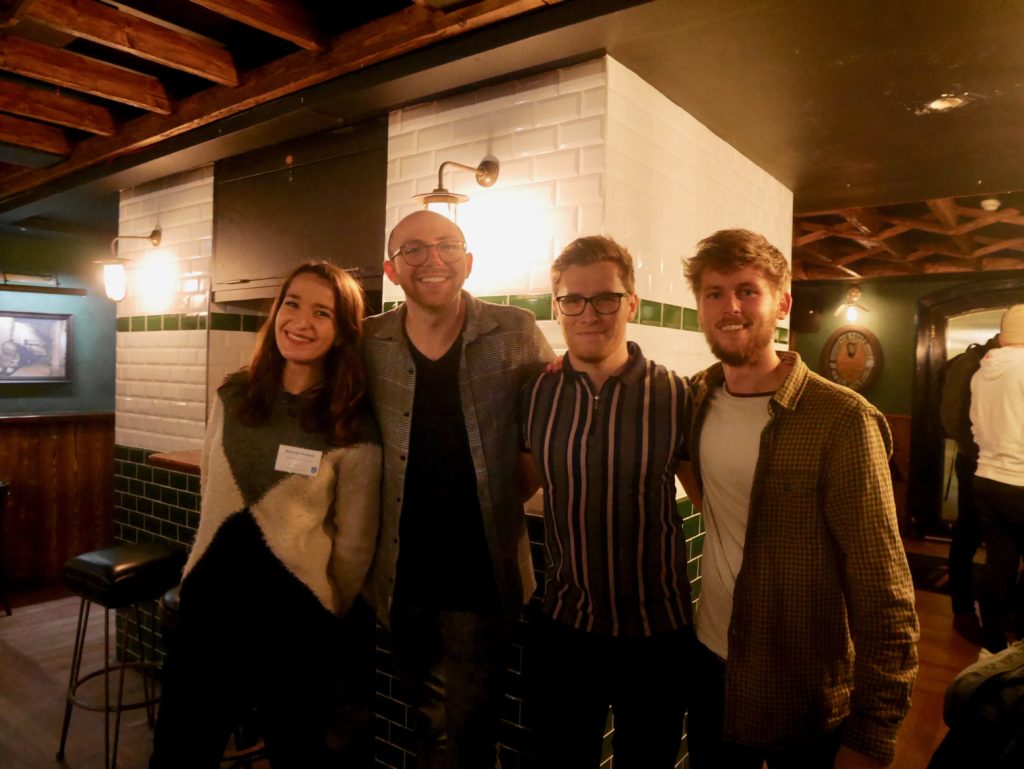

About the author
Emma Govan is a fourth year undergraduate student in Zoology. She is currently researching thermal ranges in sharks.


Such a great read! Fav bit is ‘Everyone moves at their own pace and you can plan all you want, but you never know how life is going to turn out.’ and maths is life!